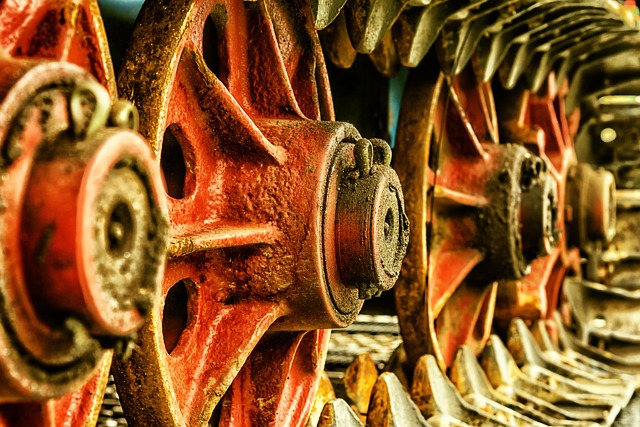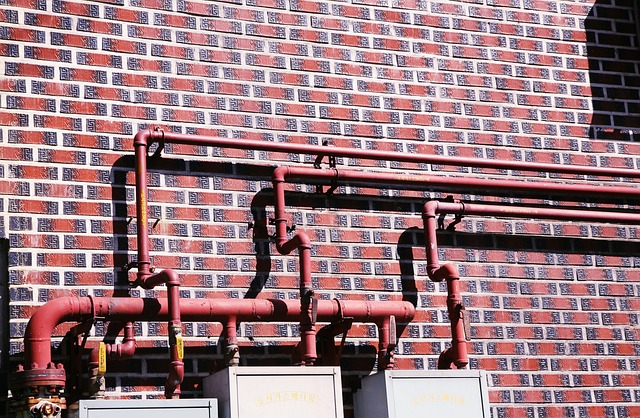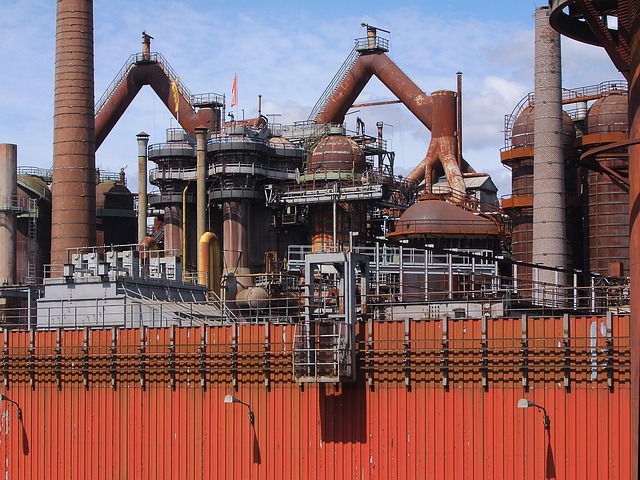Moisture, contaminant buildup, improper drainage, hard water, standing water, and bacterial growth are primary drivers of pipe corrosion in older plumbing systems featuring iron, steel, or copper pipes. These factors accelerate rusting, leading to leaks, reduced water pressure, structural integrity loss, insulation and foundation damage, and potential contamination of drinking water. Addressing these common causes is crucial for homeowners to prevent costly repairs and ensure safe, clean water supplies.
Are your pipes rusting faster than you can keep up with repairs? It’s not just an annoying problem—pipe corrosion is a leading cause of leaks, reduced water pressure, and even structural damage in homes. Understanding the common causes of pipe corrosion, such as water quality, pipe materials, and environmental conditions, is key to preventing this costly issue. In this article, we’ll dive into these factors and offer practical solutions to protect your pipes from rust, ensuring a secure and efficient plumbing system.
- Common Causes of Pipe Corrosion
- – Discuss various factors contributing to pipe rusting, such as water quality, pipe materials, and environmental conditions.
- How Pipe Corrosion Affects Your Home
Common Causes of Pipe Corrosion

Pipes rusting is a common issue that can be attributed to several factors. Understanding the common causes of pipe corrosion is the first step in addressing and preventing this problem. One primary reason for pipe degradation is the presence of moisture. Over time, water seepage or high humidity levels can lead to significant corrosion, especially in older plumbing systems. This is particularly true for pipes made from materials like iron, steel, and copper, which are susceptible to rust when exposed to moisture continuously.
Another common cause is the accumulation of contaminants and mineral deposits. Hard water, for instance, contains minerals that can adhere to pipe surfaces, creating an environment conducive to corrosion. Additionally, improper drainage or standing water in pipes can foster bacterial growth, further accelerating corrosion rates. These factors contribute to the deterioration of pipes, leading to leaks, reduced water pressure, and even pipe failure if left unaddressed.
– Discuss various factors contributing to pipe rusting, such as water quality, pipe materials, and environmental conditions.

Water quality plays a significant role in pipe corrosion. Hard water, rich in minerals like calcium and magnesium, can accelerate rusting by promoting the formation of mineral deposits on pipe surfaces. These deposits not only reduce water flow but also create ideal conditions for corrosion by trapping moisture. Additionally, the presence of chlorine and other chemicals in treated water can be detrimental, acting as catalysts that speed up the rusting process.
Pipe materials are another critical factor. While metal pipes, especially those made from iron or steel, are prone to rust due to their inherent susceptibility to oxidation, plastic pipes aren’t immune. Even PVC (polyvinyl chloride) pipes can become affected over time, particularly in environments with high moisture levels and poor ventilation. Environmental conditions such as temperature fluctuations, exposure to sunlight, and humidity also contribute to pipe corrosion. Extreme heat can cause metal pipes to expand, leading to stress at joints and connections, while freezing temperatures can create pressure that weakens pipe structures.
How Pipe Corrosion Affects Your Home

Pipe corrosion can have a significant impact on your home’s overall health and functionality. When pipes rust, it not only weakens their structural integrity but also leads to potential leaks, which can cause extensive water damage. Over time, this can result in the deterioration of insulation, walls, and even foundations. Beyond physical damage, corroded pipes can compromise the quality of your drinking water by introducing harmful contaminants into the supply. Common causes of pipe corrosion include exposure to acidic or corrosive water, poor plumbing materials, lack of regular maintenance, and extreme temperature fluctuations. Identifying these issues is crucial in preventing major home repairs down the line.
Understanding the common causes of pipe corrosion is the first step towards maintaining a rust-free plumbing system. By addressing factors like water quality, choosing appropriate pipe materials, and considering environmental influences, homeowners can significantly reduce the risk of costly repairs due to pipe corrosion. Regular inspection and prompt action are key to ensuring your pipes remain in top condition, preventing damage and keeping your home’s plumbing system running smoothly for years to come.
